
Neha became a critical care nurse at Aster CMI Hospital in Bengaluru because she was inspired by her mother, also a nurse. The bedtime stories she was told were different from those of other children. “Sometimes she would take me to the hospital and the patients there were like family to her,” said Neha.
Now Neha can say the same. “We think about our patients even at night,” she said. “If they are going back healed, then we are the happiest. We pray that they never come back to the ICU.” Sometimes, from her heart, she finds herself praying for her patients. At hospitals, she says, more prayers are said than at mosques or temples. “We have seen the needs of patients [at close quarters],” she said. “I have learnt the value of a life….”
Neha’s story was a short film that was played at THE WEEK’s second Health Summit held on October 25 at The Ashok in Delhi. Had best-selling author and life coach Gaur Gopal Das watched it, he would have said that Neha had found purpose in life. After all, it was one of the major themes he dealt with at the summit. “Mark Twain once said that there are two most important days in everyone’s life,” he said. “The day you are born and the day you find out why.”
In fact, purpose has a special meaning in health care. As Riyad Mathew, chief associate editor and director of THE WEEK, said in his presidential address, if a journalist gets an exit poll wrong using technology, it might not matter much, but if a doctor gets something wrong, it could be a matter of life and death. No one has seen this sacredness of life at closer quarters than those working in the health care industry. Each of the eminent delegates at the summit spoke on different aspects of health care, but what united them was a passion for purpose-driven medicine.
Diese Geschichte stammt aus der November 10, 2024-Ausgabe von THE WEEK India.
Starten Sie Ihre 7-tägige kostenlose Testversion von Magzter GOLD, um auf Tausende kuratierte Premium-Storys sowie über 8.000 Zeitschriften und Zeitungen zuzugreifen.
Bereits Abonnent ? Anmelden
Diese Geschichte stammt aus der November 10, 2024-Ausgabe von THE WEEK India.
Starten Sie Ihre 7-tägige kostenlose Testversion von Magzter GOLD, um auf Tausende kuratierte Premium-Storys sowie über 8.000 Zeitschriften und Zeitungen zuzugreifen.
Bereits Abonnent? Anmelden

Why Trump covets Greenland
There’s no denying it. Donald Trump is a prince among real estate developers, known for his pushy, winner-takes-all approach.
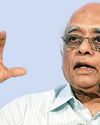
Bomb man who kept his mouth shut
The best thing about Rajagopala Chidambaram, who passed away recently, was that he “could keep his mouth shut”, as his mentor Raja Ramanna wrote in his memoir, Years of Pilgrimage. No wonder, he tested six atom bombs with no CIA, ISI or satellite spy eyes getting any wiser beforehand.
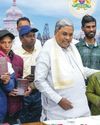
Extreme to mainstream
With the recent surrender of six Naxals, Chief Minister Siddaramaiah declares Karnataka almost “Naxal-free”. The BJP is questioning his “closeness” to the far left

SUMMITS, SURVIVAL AND SERVICE
Mountaineering expeditions play a crucial role in mountain warfare training
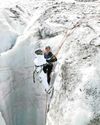
EYES ON THE ICE
THE INDIAN ARMY TRAINS ITS MOUNTAIN WARRIORS AT THE MACHOI GLACIER WHERE THEY LEARN ICE AND SNOW CRAFT IN SUB-ZERO TEMPERATURES. THE HIGH ALTITUDE WARFARE SCHOOL IN GULMARG PREPARES THEM FOR WARS THAT ARE DRIVEN BY TECHNOLOGY AND INTELLIGENCE. ON SNOW-COVERED BATTLEFIELDS LIKE THE HIMALAYAS, THE ARMY WANTS ITS JUNIOR LEADERSHIP TO BECOME DECISION-MAKERS AT THE TACTICAL LEVEL
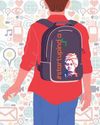
Time to dream big
Every year, January 12 is celebrated as National Youth Day—as homage to the birth anniversary of Swami Vivekananda, honouring his enduring teachings and visionary ideas.
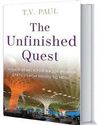
Climbing the power ladder
In his latest book, T.V. Paul explores India's search for its day in the sun as a global power

Howdy, rowdies
The world is already exhausted, and Donald Trump has not even begun his second term.

The going gets rough
It’s been a very macho fortnight
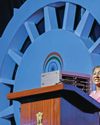
Eastward Ho!
Odisha, which hosted this year's Pravasi Bharatiya Divas, is emerging as a focal point for India's Act East Policy, given the turmoil in the northeast